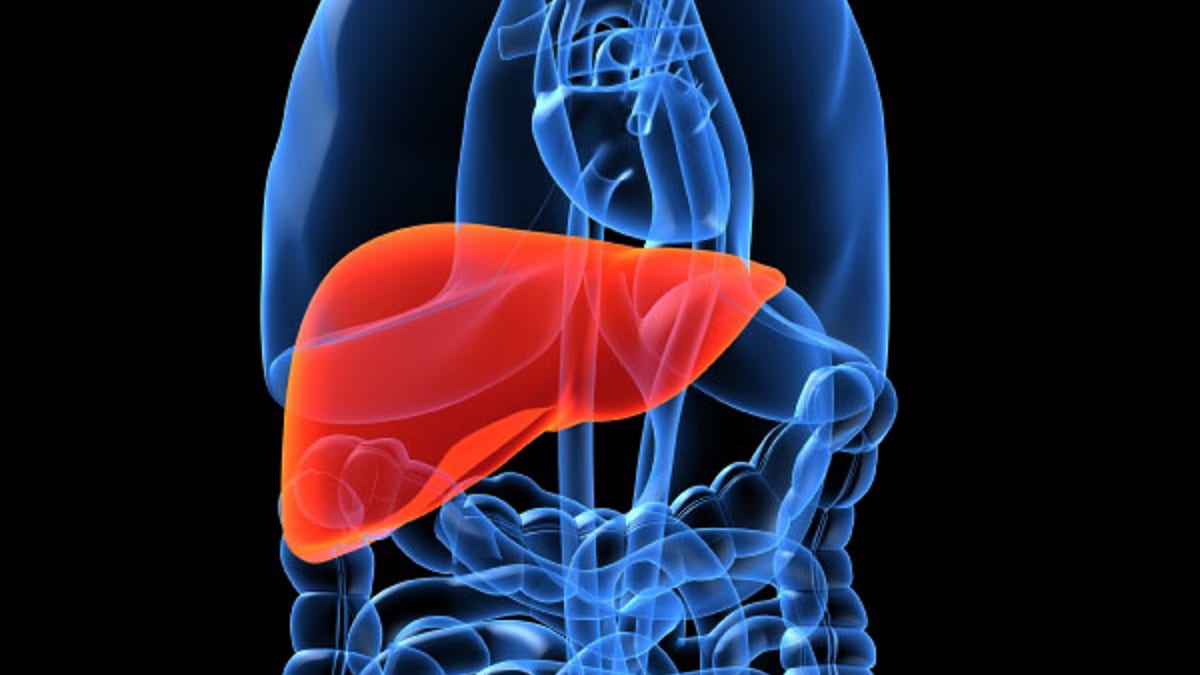
A healthy 35-year-old woman who took a weight-loss supplement developed liver failure, and needed a liver transplant, according to a new report of her case.
The woman took three Saba Appetite Control and Energy (ACE) pills within two days, and two weeks later she developed jaundice, according to the report from researchers at the University of Kentucky in Lexington, who treated the woman.
Her condition worsened, and a week later she developed leg swelling and an accumulation of fluid in the abdominal cavity (known as ascites). Eight weeks after her jaundice set in, the woman experienced liver failure and needed a transplant.
"A week after the transplant she was discharged from the hospital, and has been doing fine since," the researchers wrote in their report, published in the May issue of the journal Gastroenterology.
"In summary, this case of drug-induced fulminant liver failure was likely due to Saba ACE supplement," the investigators wrote. [Dr.Oz's5 Controversial 'Miracle' Diet Pills]
The patient was admitted to the hospital in September 2013, study author Dr. Erin Maynard, an assistant professor of surgery at the university, told Live Science.
Before her admission to the hospital, the woman had also been taking the antidepressant Zoloft and birth control pills for three years, the report said.
It is not clear which ingredient in the supplement may have led to her reaction, or whether it may have been caused by drug interaction or possible contamination of the supplement, the researchers wrote.
The formula of the supplement that the woman took included the controversial substance DMAA, an amphetamine derivative, also known as methylhexanamine, or geranium extract, they wrote. The use of DMAA has been linked to serious health problems such as heart attacks and even deaths.
In April 2013, the FDA sent warning letters to 11 companies asking them to take DMAA-containing products off the market.
"DMAA-containing dietary supplements are illegal and their marketing violates the law," the FDA said in a July 2013 post on its website.
Saba's manufacturer announced in the fall of 2013 that it had changed the supplement's formula, and removed DMAA from the ingredients' list, according to information on the website of one of Saba's distributors. DMAA is not listed as one of the ingredients in the version of the Saba ACE supplement that is currently on the market.
Although DMAA has been marketed as "natural" by supplement manufacturers, "FDA is not aware of any reliable science indicating that DMAA exists naturally in plants," the FDA website says.
"There have been two reported cases of liver failure associated with DMAA use in the military and recently 43 cases of hepatitis in Hawaii associated with OxyElitePro, a supplement containing DMAA, with two liver transplants and one death," the researchers noted in the woman's case report.
However, Dr. Pieter Cohen, an assistant professor of medicine at Cambridge Health Alliance, who was not involved in the case report, said that it is hard to establish from the new report whether it was DMAA in the supplement that caused the woman's liver failure, especially without analyzing the supplement to confirm whether its content was the same as listed on the label.
Maynard said the investigators did not analyze the supplement to test its content.
Because supplements are regulated more loosely than drugs, there is no guarantee they really contain the ingredients on the label, and they may even contain substances that are not listed. In fact, Cohen's lab found prescription drugs in a sex-enhancement supplement called Sex Plus, he told Live Science in a 2013 interview.
The Saba supplement that the patient took also included a green tea extract, which has been linked to "several cases of liver injury, with two cases of fulminant liver failure requiring transplantation," the researchers wrote.
In another case report, published in August 2013 in the World Journal of Gastroenterology, researchers described a case of liver failure in a 16-year-old boy who had been taking green tea extract to lose weight.
The new, non-DMAA version of the supplement that the woman took includes green tea extract, caffeine, green coffee bean extract, garcinia cambogia, konjac root and L-carnitine, among others, according to the information on the product label.
Meanwhile, other supplements with DMAA can still be found and purchased online, for instance, on websites liveleantoday.com and nutri-verse.com.
"This case highlights the increasing concern regarding the safety of diet supplements," the investigators wrote, adding that in April 2013 the FDA issued warning letters to take products with DMAA off the market.
"Despite this warning, these products are still currently available for consumption," they wrote.
Copyright 2014 LiveScience, a TechMediaNetwork company. All rights reserved. This material may not be published, broadcast, rewritten or redistributed.







































